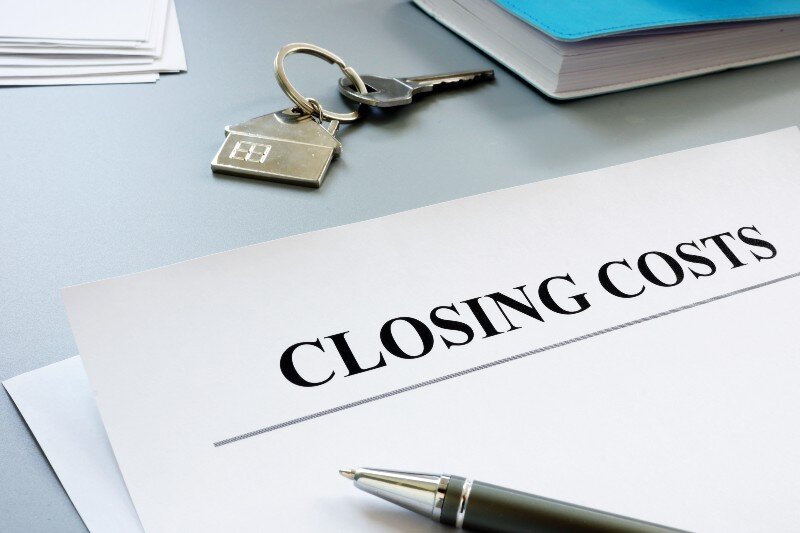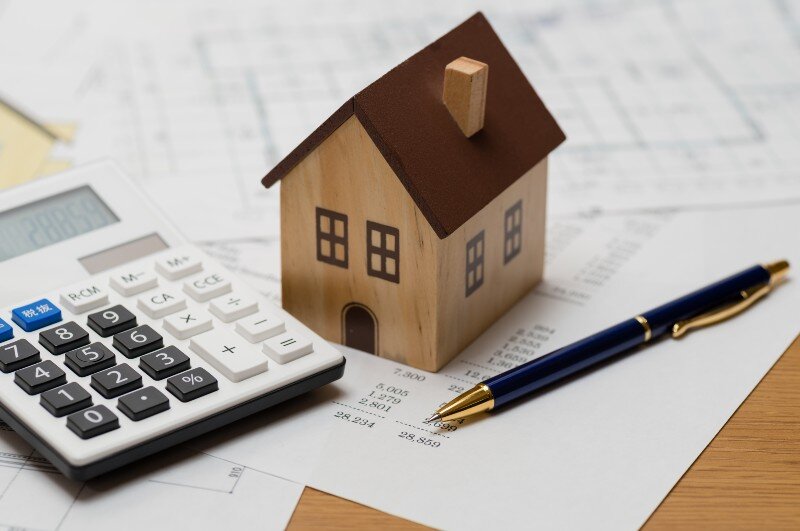
Many sellers forget to calculate closing costs when selling their home or property. It’s all too easy to happily enter escrow and then be blindsided by an array of fees you didn’t expect.
As the seller, you may have thought that closing costs only apply to the buyer. You might have imagined that you would only need to cover the real estate agent commissions, which are already a significant hit to your net proceeds. Then you find that you’re responsible for other fees, like an HOA transfer and prorated property taxes.
Beyond that, the buyer may want to negotiate further concessions, cutting into your profits even further. So, how much are the closing costs for the seller?
The truth is, it’s hard to say. Closing costs can vary significantly. The best you can do as the seller is to be prepared.
So, below we discuss closing costs in detail, so you know what to expect. At the very least, you won’t be blindsided when you enter the escrow process.
How Much Are Closing Costs for the Seller?
Real estate transactions are never free. Fees sellers have to pay when selling a house are easy to forget about but can add up fast.
Seller closing costs vary by state and municipality. They also depend on the home price. So, it’s hard to say exactly what a seller will pay in closing costs.
However, real estate agents generally advise full closing costs will reach between 1% and 7% of the home sale price. Typically, the seller pays 1% to 3% of those costs, not including the real estate agent’s commissions, which sellers pay in their entirety. Buyers pay the rest.
In most cases, the closing costs will come out of the profits of the sale. So the seller never has to cut a separate check. If there’s not enough equity in the home, though, the seller may have to provide cash to cover the closing costs.
Does the Seller Have To Consume Closing Costs?
Home sellers typically have to consume certain closing costs, including:
- Title insurance policy
- Mortgage payoffs and prepayment penalties
- Any outstanding amount owed on the property
- Seller attorney fees
- Transfer taxes
- Prorated property tax
- HOA fees
- Any other negotiated credits toward closing costs
- Their portion of escrow fees
Other common closing costs are typically covered by the buyer, but they don’t have to be. The buyer can negotiate with the seller to cover additional closing costs such as:
- Title search
- Title insurance policy
- Home inspection fee
- Appraisal
- Survey
- Credit report fees
- Buyer attorney fees
- Recording fees
- Fees to the escrow company
- Loan origination fees
Usually, if the buyer wants the seller to cover any of these closing costs, the buyer’s agent will present the initial offer with a seller concession built in.
Alternatively, they may ask the seller to pay more closing fees during renegotiation. For example, if an issue comes up during the home inspection, the buyer may request a concession to cover it.
Below, we define a few of the most confusing and common closing costs so you get a better idea of what they mean and whether or not they’ll apply to your home sale.
Title Insurance Policies
On closing day, you’ll see two lines for title insurance policies: the owner’s title insurance and the lender’s title insurance. The owner’s policy protects the buyer from any title or ownership claims on the property. The seller traditionally pays for this.
The lender’s policy essentially does the same. It protects the buyer’s lender’s interest in the property but is paid for by the buyer.
Title Search
Before you can sell your home, a title search must show that you are the owner and that there are no liens on the property. This requires a title search, usually costing between $300 and $600 to run.
Attorney Fees
Twenty-one states require a real estate attorney to be present at every home sale, but even outside of those areas, some buyers and sellers still choose to have one there. If the transaction deals with inherited or distressed property, an attorney will likely be involved.
Transfer Taxes
Transfer taxes are a fee you pay to the government to transfer the property’s title. Taxes vary significantly by state and are part of why calculating typical closing costs is difficult.
Escrow Company Fees
The escrow company manages the home sale, meaning they deal with document signatures, holding funds, and managing the closing process.
Escrow companies can charge either a flat fee for their services or will charge 1% of the home sale price. In addition, they may charge fees for office expenses, notary services, and document copies. Typically escrow fees are split 50/50 between the buyer and the seller.
Prorated Property Tax
The home seller owes the prorated property tax on their home up to the date of sale. After that, the buyer takes over.
Depending on the closing date and when property taxes are due in your state, you may have to bring yourself up to date on property taxes during escrow.

How To Calculate Closing Costs
Average closing costs in the US can range from $2k to $13k, depending on the home’s location and what legalities apply. This is a huge range, and calculating closing costs isn’t straightforward.
Different fees and legal requirements between states and local governments will affect total closing costs. So, closing costs in California will vary significantly from those in Philadelphia or New York.
There are also numerous other variables involved in the closing cost calculation. For example, suppose the home belongs to a homeowners association. In that case, there may be an HOA transfer fee that can range significantly from $200 to $600 or more, depending on the specific HOA guidelines.
Closing costs can also vary based on the buyer’s credit score, the size of their down payment, and their specific mortgage lender.
To determine the closing costs in your home sale, you can use an online calculator or work with your realtor to lay out likely scenarios.
Can a Seller Split Closing Costs With a Buyer?
The seller can split closing costs with a buyer by utilizing seller concessions.
Seller concessions are closing costs that the seller agrees to pay upfront. For example, home sellers might agree to pay some of the buyer’s closing costs for real estate attorney fees, mortgage discount points, or appraisal fees to make their property more enticing.
Seller concessions work in two ways:
- They come from the sale of the home. So, if the sale price is $100,000 and the home seller offers $3,000 in concessions, the seller will actually receive $97,000.
- The concession amount is added to the purchase price and rolled into the loan amount, which the buyer pays off. So, if the sale price is $100,000 and the seller agrees to $3,000 in concessions, the new price of the home becomes $103,000.
In the second scenario, the home cannot appraise for less than the sale price with the added concessions because the lender cannot lend over the appraisal amount.
Seller concessions are only for splitting or covering closing costs. The buyer can’t use concessions for other things like their down payment, new appliances, or home updates.
Seller concessions are also dependent on the type of home loan the buyer has. For example, concessions cannot be more than 6% of the loan amount if the home buyer has a USDA or FHA loan.
Benefits of Consuming Closing Costs as the Seller
Consuming some of the closing costs can make your home more enticing in a buyer’s market. When there are more homes for sale than there are interested buyers, consuming closing costs could increase the number of potential buyers and sell your home faster.
Your listing agent can advise on whether consuming part of the closing costs is a good idea in your area.
Of course, consuming the closing costs means less money in your pocket, and negotiations can be frustrating. If you’re lucky enough to get a cash offer, you can avoid many closing fees and simplify the process.
We buy houses Pennsylvania residents love and help sellers in the area avoid annoying closing fees, including realtor commission fees. So if you need to sell a house fast and want to avoid extra costs and fees, especially as the market gets more competitive for sellers, we can help.
Conclusion
The cost to sell a house can be high, and you may not pocket as much as you anticipated. Unless you get a cash offer that doesn’t involve a real estate agent (and their pesky commissions), you can expect to lose a couple of grand in fees.
Cash home buyers in Philadelphia are hard to find. So if you need to sell a house fast in Springfield or another area of Pennsylvania, you should consider Problem Property Pals. We make selling your home an easy and lucrative process, and you won’t have to deal with frustrating closing costs.

 Call Us!
Call Us!